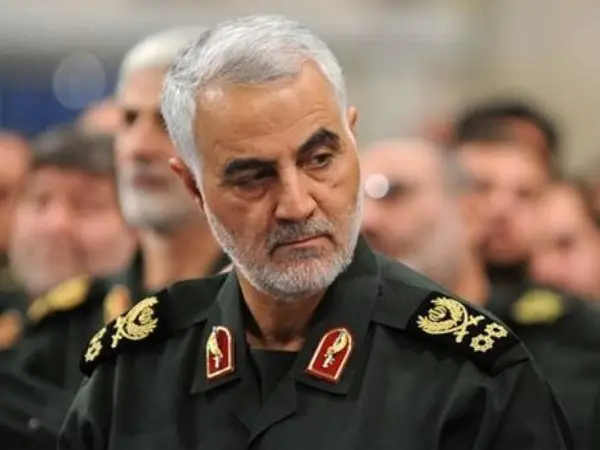A former advisor to Iran’s Qasem Soleimani has said that a Russian officer in Syria once gave the Qods chief 100 Krasnopol guided artillery shells as a gift.
In an article published by Fars news agency, an affiliate of Iran’s Revolutionary Guards on Friday [Dec. 31], Hassan Ravandeh, related stories about the life and “charismatic” character of the slain commander as a tribute on the second anniversary of his killing.
Ravandeh, who was identified by Fars as one of the advisors to IRGC’s Qods (Quds) Force, is said to have accompanied Soleimani during his missions and trips across the region. He has recently published a book about his memoirs of the IRGC’s top man overseas.
He said that Soleimani was very popular among other military men active in the region, adding that he used to bring souvenirs for the families of everybody he was involved with. He singled out an unnamed Russian commander who was stationed in the Syrian port city of Latakia that was especially fond of the Iranian commander.
According to the article, Soleimani bought a necklace for his wife and gold jewelry for his daughters before paying them a visit in Latakia. Surprised by the gifts the Russian asked how he could reciprocate the gesture, and Soleimani, reportedly, demanded that they sell him about 1,000 Krasnopol laser-guided artillery shells.
Ravandeh says that the Russian commander, who he claims is now the head of the aerospace force of the Russian army, gave Soleimani 100 projectiles because they only had 140 available in their arsenal. He added that Russia never asked for any money in return for such a gift, which according to him was worth about $7 million.
Soleimani was killed in a United States drone attack, ordered by former president Donald Trump in January 2020, as he arrived at Baghdad airport from Syria. He was Iran’s top military and intelligence operator in the Middle East, organizing proxy forces.
Soleimani played a major role in the Syrian civil war as the coordinator of Iran’s military involvement, including sending tens of thousands of regular and irregular forces to fight in support of the Syrian strongman Bashar al-Assad.
In June 2014, Iran’s Tasnim news agency in a report quoted General Mohammad Pakpour IRGC’s ground forces as saying that the Revolutionary Guard’s artillery force has upgraded its capability with deploying Krasnopol guided shells.
It is not clear if Pakpour’s announcement was related to Soleimani’s exchange of gifts with the Russian commander in Syria. Russia was still not officially involved in the Syrian war in 2014, but it most probably had a military mission to assist Assad’s forces. Russia entered the war in full force in September 2015.
It is also possible that Russia had already supplied the artillery shells before Soleimani asked for more in Syria. But whether in 2014 or later, any Russian transfer of Krasnopol shells would have violated a United Nations arms embargo on Iranimplemented in 2007, which expired in October 2020, well after Pakpour’s statement or Soleimani’s death.
